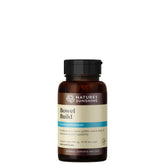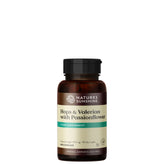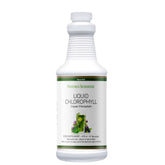Are you tired of waking up with stiff joints or experiencing nagging pain that disrupts your daily activities? You’re not alone! Chronic inflammation affects millions, silently undermining our health and well-being.
Inflammation is the body's natural response to injury, infection, or harmful stimuli, but chronic or excessive inflammation can lead to a range of health problems. It can damage tissues, cells, and organs, contributing to conditions such as arthritis, heart disease, diabetes, and autoimmune disorders. Inflammation also plays a role in the development of cancer by promoting an environment that supports the growth of tumors.
Additionally, chronic inflammation has been linked to mental health issues, such as depression and anxiety, as it disrupts normal brain function. Long-term, unchecked inflammation weakens the immune system and accelerates aging, making it a key factor in many diseases.
The Good News
Many of the root causes of inflammation are within your control. With the right diet, exercise, and lifestyle changes, you can not only prevent inflammation but also alleviate and potentially eliminate its symptoms. In this blog, we’ll explore the causes of inflammation, the conditions it can lead to, and how you can use natural methods—like an anti-inflammatory diet, exercise, and essential oils—to keep your joints and body healthy. Let’s embark on this journey to wellness together!
What Causes Inflammation?
Inflammation is a defense mechanism, a way for your body to protect itself from infection, injury, or harmful stimuli. However, when the immune system goes into overdrive, it can cause chronic inflammation. Several main causes of inflammation are important to consider for maintaining overall health. Key contributors include:
-
Poor Diet: A diet high in processed foods, sugars, and unhealthy fats, particularly omega-6 fatty acids from seed oils, can lead to chronic inflammation.
-
Chronic Stress: Prolonged emotional and physical stress can trigger the release of inflammatory cytokines, contributing to an inflammatory state in the body.
-
Sedentary Lifestyle: Lack of physical activity can promote inflammation, as regular exercise helps regulate inflammatory markers and supports overall immune function.
-
Environmental Toxins: Exposure to pollutants, chemicals, and heavy metals can provoke inflammatory responses in the body, leading to various health issues.
-
Infections: Chronic infections or pathogens can result in persistent inflammation, as the immune system continues to respond to the threat.
-
Food Sensitivities: Individual reactions to certain foods, such as gluten or dairy, can provoke inflammation in sensitive individuals, highlighting the importance of understanding personal dietary triggers.
Common Joint Conditions Associated with Inflammation
Inflammation can lead to a variety of joint and muscular issues, significantly impacting mobility and quality of life. Some common conditions include:
-
Arthritis: Inflammation is a key factor in different types of arthritis, such as osteoarthritis and rheumatoid arthritis. This can cause joint pain, stiffness, swelling, and reduced range of motion.
-
Tendinitis: Inflammation of the tendons, often caused by repetitive movements or overuse, can result in pain and swelling in areas such as the elbows (tennis elbow), shoulders (rotator cuff tendinitis), and knees (patellar tendinitis).
-
Bursitis: Inflammation of the bursae, small fluid-filled sacs that cushion joints, can lead to pain and swelling, commonly affecting the shoulders, elbows, hips, and knees.
-
Fibromyalgia: This chronic condition is characterised by widespread musculoskeletal pain, fatigue, and tenderness in localised areas, often linked to underlying inflammation.
-
Muscle Strains and Sprains: Inflammation can occur in response to muscle strains or ligament sprains, leading to pain, swelling, and reduced function in the affected area.
-
Chronic Pain Syndromes: Conditions like chronic fatigue syndrome and complex regional pain syndrome can be exacerbated by inflammation, leading to persistent pain and disability.
The great news is that by addressing inflammation head-on, you can dramatically improve your symptoms—and even prevent the onset of some of these conditions.
The Anti-Inflammatory Diet: Your Joint and Health Saving Superpower
The food we eat plays a powerful role in either contributing to or fighting inflammation. Adopting an anti-inflammatory diet is one of the most effective ways to protect your health, joints and reduce chronic inflammation throughout the body. This approach emphasises reducing inflammation by following a natural, nutrient-dense diet that focuses on organic, whole foods and eliminates processed, inflammatory ingredients.
Look Out For PUFA's (Polyunsaturated Fatty Acids)
We recommend paying close attention to the types of fats in your diet, as they play a significant role in managing inflammation. Polyunsaturated fatty acids (PUFAs), especially those found in seed oils like canola, sunflower, and soybean oil, can contribute to chronic inflammation. These oils are high in omega-6 fatty acids, which, when consumed in excess, can upset the body’s fat balance and trigger inflammation. In contrast, omega-3 fatty acids, found in wild-caught fish, flaxseeds, and chia seeds, have powerful anti-inflammatory effects. To promote overall health and reduce inflammation, we advise minimising seed oils and increasing your intake of omega-3-rich foods to restore a healthy balance and support your well-being.
Foods to Include (Anti-inflammatory)
- Organic Vegetables - Leafy greens (spinach, kale, collard greens), cruciferous vegetables (broccoli, cauliflower, Brussels sprouts), root vegetables (sweet potatoes, carrots, beets)
- Organic Fruits - Berries (blueberries, raspberries, strawberries), apples, pears, citrus fruits (lemons, oranges)
- Grass-fed, Organic, and Free-range Animal Proteins - Grass-fed beef, free-range chicken and turkey, wild-caught fish (salmon, sardines, mackerel)
- Healthy Fats - Extra virgin olive oil (non-heated), coconut oil, avocados, ghee (clarified butter from grass-fed cows)
- Nuts and Seeds - Almonds, walnuts, chia seeds, flaxseeds, hemp seeds
- Fermented Foods - Sauerkraut, kimchi, kefir, yogurt (unsweetened, preferably from grass-fed cows)
- Herbs and Spices - Turmeri, ginger, garlic, cinnamon, basil, oregano, rosemary
- Hydration - Filtered, mineral or spring water, herbal teas (green tea, turmeric tea)
Foods to Avoid (Pro-inflammatory)
- Processed and Refined Foods - Sugary snacks (cakes, cookies, candy), fast food, packaged, pre-made meals
- Refined Carbohydrates - White bread, pasta, pastries, sugary cereals
- Industrial Seed Oils - Canola oil, soybean oil, corn oil, vegetable oils
- Conventional Dairy - Non-organic milk, cheese, and yogurt, highly processed dairy products
- Gluten-containing Grains - Wheat, barley, rye
- Sugar and Artificial Sweeteners - High fructose corn syrup, Aspartame, saccharin, sucralose
- Excessive Alcohol - Limit to minimal consumption, especially sugary cocktails and beer
- Non-organic, Factory-farmed Animal Products - Meat from animals raised with antibiotics and hormones
By focusing on organic, unprocessed, and nutrient-dense foods, our philosophy aims to reduce inflammation and improve overall health.
Natural Supplements For Inflammation
Nature’s Sunshine Products: Trusted Expertise in Herbal Remedies
With over 50 years of experience in harnessing the power of nature, Nature’s Sunshine has developed a range of high-quality supplements that target inflammation and joint issues with precision. Here are some standout products that can help ease joint pain and improve mobility:

EverFlex
EverFlex combines glucosamine, chondroitin, MSM, and hyaluronic acid to support joint flexibility and lubrication. This supplement helps protect cartilage, reduce inflammation, and promote joint mobility, making it ideal for anyone looking to maintain an active lifestyle or alleviate joint stiffness.
Omega-3 EPA
Omega-3 fatty acids are known for their anti-inflammatory effects, and Nature’s Sunshine’s Omega-3 EPA supplement provides a high dose of these essential fats to help combat inflammation at the cellular level. By reducing the body’s inflammatory response, Omega-3s can help decrease joint pain and improve flexibility over time.

MSM (Methylsulfonylmethane) Plus
MSM is a natural sulfur compound that plays a key role in reducing inflammation and promoting healthy connective tissue. Lily & Loaf’s MSM Plus is formulated to reduce joint pain and improve recovery, making it perfect for those dealing with arthritis or post-exercise inflammation. It also supports collagen production, which is essential for healthy cartilage.
Vitamin D3
Vitamin D3 is crucial for supporting joint health by reducing inflammation and maintaining strong, healthy bones and teeth. It is essential for muscle function and can help alleviate muscle pain while contributing to immune system support. By regulating blood calcium levels and aiding in the absorption of calcium and phosphorus, Vitamin D3 promotes normal cell division and growth, significantly reducing the risk of bone diseases.This nutrient is particularly beneficial for individuals with limited sun exposure or darker skin, as it helps manage the body’s inflammation response. Additionally, Vitamin D3 plays an important role in mental health and helps to enhance mood, making it a vital component of overall wellness.
Lily & Loaf: Pure Ingredients for Total Wellness
Lily & Loaf focuses on natural, ethically sourced ingredients to provide targeted health solutions. Their joint and inflammation-related products are crafted with care to ensure maximum potency and effectiveness. Here’s how they can help:
Optimised Curcumin
Turmeric is renowned for its powerful anti-inflammatory properties, and Lily & Loaf optimised Curcumin supplement is formulated to deliver the maximum benefits. Curcumin, the active compound in turmeric, helps reduce swelling and stiffness in the joints, making it a natural solution for those suffering from arthritis or chronic pain.
Collagen Plus
Collagen Plus is a potent blend of marine collagen, hyaluronic acid, biotin, vitamins C and A, and Hebridean seaweed, designed to support overall wellness. This gluten-free formula not only promotes joint health and reduces inflammation but also enhances bone strength and flexibility. With added benefits such as improved skin elasticity, stronger hair, skin, and nails, and faster wound healing, Collagen Plus is a comprehensive solution. It also aids in mood improvement, better sleep, weight management, and supports a healthy immune system and digestive health. Plus, its highly absorbable marine collagen makes it an environmentally friendly choice for enhancing your well-being.
Nature and Exercise: The Dynamic Duo for Joint Health
Movement is key to keeping joints healthy, but it’s important to strike a balance. Low-impact exercises like walking, swimming, or cycling help keep your joints flexible and improve circulation without putting excessive stress on your body. Additionally, incorporating strength training into your routine helps build the muscles that support your joints, reducing the risk of injury. Yoga and Pilates are fantastic for improving flexibility, reducing stress, and building core strength, all of which benefit your joints and overall well-being.
Nature is a healing force. Getting outdoors is an underrated yet powerful way to combat inflammation. Nature itself has anti-inflammatory effects! Research has shown that spending time in green spaces can reduce cortisol levels, calm your mind, and lower inflammatory markers in the body. Regular walks in nature, hikes, or simply relaxing in a park can do wonders for both your mental and physical health, helping you manage stress—a major driver of inflammation.
The Power of Water: Staying Hydrated for Joint Health and Beyond
When one considers that we are 99% water by molecular count and 75% by mass, it becomes clear just how vital water is to our physical existence. Dr. Fereydoon Batmanghelidj, a renowned physician and researcher, emphasised the crucial role of water in health, arguing that chronic dehydration is often the root cause of many diseases. According to his work, conditions such as asthma, hypertension, and arthritis could be linked to the body's prolonged lack of adequate hydration. His research underscores the idea that many ailments stem from the body’s struggle to function optimally without sufficient water, reinforcing the profound connection between hydration and overall well-being.
Why Hydration Matters For Joint Health
Water acts as a lubricant for your joints, ensuring they move smoothly and without pain. The cartilage in your joints is composed largely of water, and dehydration can lead to stiffness, discomfort, and increased wear and tear over time as well as so many other symptoms.
Dehydration thickens the blood, reducing circulation to your joints and muscles, which can exacerbate inflammation. Staying hydrated can alleviate stiffness, reduce inflammation, and improve the flexibility of your joints. Beyond joint health, hydration impacts every part of your body—from your skin and digestion to your mood and energy levels.
Clean Mineral Rich Water: A Must for Health
It's not just about drinking enough water; the quality of the water you consume is just as important. Tap water in many regions contains impurities and chemicals that can be harmful over time. Choosing clean, mineral rich filtered, mineral or spring water helps to support your body’s hydration and reduce inflammation.
Signs You May Be Dehydrated
We recommend paying close attention to the signs of dehydration, as recognising them is crucial for maintaining your overall health and well-being. Common indicators to watch for include:
- Thirst: A strong sense of thirst is often the first sign that your body needs more water.
- Dark Urine: If your urine is dark yellow or amber, it may indicate dehydration; ideally, it should be light yellow.
- Fatigue: Feeling unusually tired or lethargic can be a sign that your body is lacking sufficient hydration.
- Headaches: Dehydration can lead to headaches or migraines, as the brain temporarily contracts from fluid loss.
- Dry Skin: Skin that lacks moisture or elasticity may indicate dehydration.
- Dizziness or Lightheadedness: Insufficient water intake can affect blood pressure and circulation, leading to feelings of dizziness.
To support your health, we advise regularly monitoring these signs and prioritising hydration. Even mild dehydration can impair physical performance, cognitive function, and overall wellness, so staying adequately hydrated is essential for your well-being.
Many people don’t realise they’re dehydrated until they experience symptoms, making it essential to stay proactive about water intake.
How Much Water Do You Need?
We recommend following Paul Chek's holistic approach to hydration, which suggests drinking water based on your body weight for optimal health. The guideline is to consume around 30-35 millilitres of water per kilogram of body weight each day. For instance, if you weigh 68 kilograms, you should aim to drink about 2 to 2.4 litres daily.
If you’re active, dealing with chronic pain, or trying to prevent joint issues, aim for more. Increase your water intake when consuming caffeine or alcohol, as both can dehydrate the body.
Diuretic Drinks are not Hydrating!
Diuretic drinks, such as coffee, caffeinated teas, and alcohol, can hinder hydration efforts by promoting increased urine production and fluid loss. While coffee is popular for its stimulating effects, its caffeine content can lead to mild dehydration, especially in those who do not regularly consume it. Similarly, alcohol inhibits the secretion of antidiuretic hormones, resulting in further fluid loss, while sugary beverages can exacerbate dehydration by requiring additional water for metabolism. To maintain optimal hydration, it’s crucial to prioritise clean water as your primary beverage, limit diuretic intake, and incorporate hydrating foods like fruits and vegetables. Balancing diuretic drinks with adequate water intake is essential for overall health and well-being.
The Power of Essential Oils and Self-Massage
Essential oils are a potent tool in your anti-inflammatory toolkit. When used topically, they can relieve pain, reduce inflammation, and promote relaxation. Here's a list of some of the best oils for joint pain and inflammation:
- Frankincense: Known for its powerful anti-inflammatory properties, it can ease joint pain and reduce swelling.
- Lavender: Calming for the mind and helps reduce pain and inflammation when massaged into sore areas.
- Eucalyptus: Contains compounds that reduce inflammation and swelling, making it excellent for sore muscles and joints.
- Peppermint: Offers immediate relief with its cooling effect.
- Ginger: Rich in antioxidants with strong anti-inflammatory properties, effective for reducing pain, stiffness, and swelling.
The Benefits of Self-Massage
Self-massage can improve circulation, reduce muscle stiffness, and encourage lymphatic drainage. Combined with essential oils, self-massage becomes even more effective. A simple daily practice of massaging sore or stiff areas for just 10-15 minutes can significantly alleviate pain, improve flexibility, and boost your mood.
The Path to Healthier Joints Starts Here!
Are you ready to take control of your joint health and reduce inflammation naturally? Start implementing these strategies today and embrace a healthier, more active lifestyle! If you found this information helpful, subscribe to our newsletter for more insights on holistic health, wellness tips, and exclusive product recommendations. Together, we can build a community focused on thriving and living pain-free!











